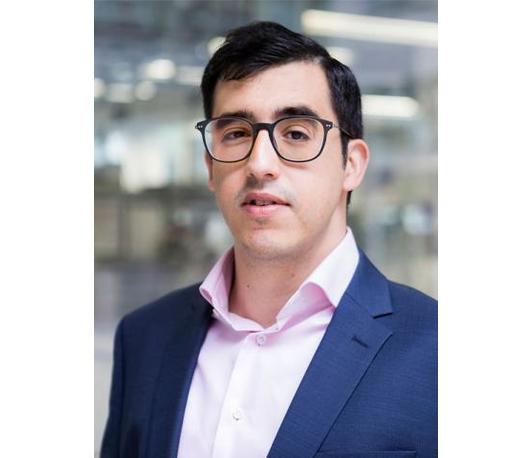MPI Colloquia Series: Prof. César Rodriguez-Emmenegger, PhD, IBEC Barcelona: Harnessing nature’s blueprints to design interactive biointerfaces and synthetic cells
MPI Colloquia Series: Prof. César Rodriguez-Emmenegger, PhD, IBEC Barcelona
- Date: Feb 1, 2024
- Time: 02:00 PM - 04:00 PM (Local Time Germany)
- Speaker: Prof. César Rodriguez-Emmenegger, PhD
- Institute for Bioengineering of Catalonia, Barcelona, Spain
- Location: Max-Planck-Institut Magdeburg
- Room: Big Seminar Room "Prigogine"
- Host: MPI Scientific Coordination
- Contact: oelbermann@mpi-magdeburg.mpg.de

The Max Planck Institute Magdeburg invites you to its series of colloquia.
Top-class scientists, from notable German and worldwide research
institutions, give a survey of their research work.
Everybody who is interested, is invited to attend.
Dial-in via Zoom: https://eu02web.zoom-x.de/j/7302508065
Abstract
Nature's ability to engineer functionality in materials arises from the hierarchical self-assembly of seemingly simple (macro)molecular building blocks. Deciphering these intricate blueprints forms a robust foundation for the bio-inspired synthesis of materials that can seamlessly interact with living systems and execute novel functions. My lecture showcases a selection of research endeavors conducted in our laboratory, all centered around the overarching objective of crafting bio-inspired interactive materials for biomedical applications. First, I will introduce adaptive hemocompatible nanocoatings with the remarkable that mimic simple functions of natural endothelium and are capable of modulating hemostasis as well as detecting and digesting blood clots. This technology is translated to oxygenator membranes. Second, I will delve into our innovations concerning 'Kill&Repel', an adaptive antimicrobial nanocoatings tailored for medical devices. Lastly, I will concentrate on the development of synthetic cells, specifically engineered vesicles designed to mimic fundamental biological properties and perform specific tasks. These tasks encompass hosting bacterial divisomes and engineering synthetic macrophage-mimetic microrobots proficient in the phagocytosis of bacteria and viruses, including SARS-CoV-2. Remarkably, all these tasks are programmed at the molecular level.
About the speaker (Personal website, Google Scholar)
César was born in Salto, Uruguay. After studying Chemical Engineering (2001-2006) in the Universidad de la República, Uruguay, he was awarded a research UNESCO-IUPAC internship (2006-2007) in the Institute of Macromolecular Chemistry in Prague where he got hooked in the topic of polymers and biointerfaces. There he pursued his Ph.D. (2007-2012) working on optical biosensors and antifouling surfaces under the mentorship of Eduard Brynda and Aldo Bologna. Following a postdoctoral work (A. von Humboldt postdoctoral fellowship, 2012-2013), and research stays in Melville Laboratory in Cambridge (2009), University of Pennsylvania (2013, 2015), and Pasteur Institute in Lille (2015), César returned to Prague to start his independent group. In January 2016, his group joined DWI-Leibniz Institute for Interactive Materials in Aachen and expanded the research to adaptive interfaces and synthetic cells. Currently, he is an ICREA Research Professor at the Institute of Bioengineering of Catalonia.